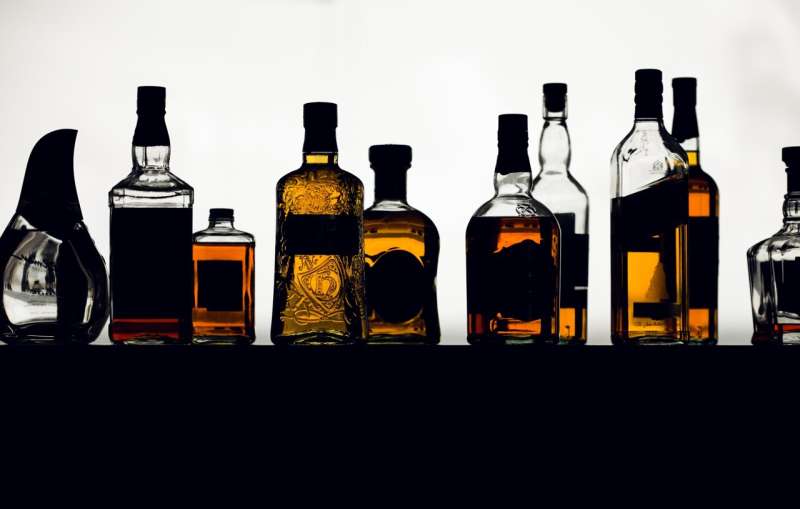Opinion: Big alcohol and tobacco are the aces of strategic marketing. The gambling industry has adopted the playbook

The federal government has been under significant pressure all week as it works to finalize proposed regulation to restrict gambling advertising. Currently, a partial ban is on the table.
This has led to severe from gambling harm researchers, community organizations and some MPs and senators. A partial ban is inconsistent with the recommendations of a recent , which unanimously recommended the need for a total ban.
Gambling is a demonstrably big problem. Australians are the world's biggest per capita gamblers, losing about a year. Nearly are at risk of, or already experience, harms from it. These include financial hardship, relationship breakdown, domestic violence, poor work productivity, criminality, insomnia, depression and suicide.
Why, then, is the government so reluctant to ban gambling advertising entirely? Part of the answer is in the industry's strategic stakeholder marketing strategies, both publicly and behind closed doors. And they're strategies we've seen before.
Mounting harms
Clever , weak regulation, and technologies such as and online casinos are .
In our , gamblers' stories of harm are extremely troubling:
"The feeling of losing […] I hate even talking about it […] it makes me so upset […] It drives you crazy […] I've dropped my phone, smashed the screen […] because I was so upset […] I was out of my mind, it's horrible."
The social costs associated with these gambling harms in Australia are estimated to cost more than each year. The problem is so significant that even banks are taking to address gambling harm to their customers.
But the gambling industry is putting up a good fight. The peak body, Responsible Wagering Australia, advertising normalizes gambling to children, and warned any bans would send people to illegal offshore operators. There's evidence contradicting both these points.
It's part of a broader strategy to prevent further regulation. The tactics at play are to those used by two other industries linked to health and social harms: alcohol and tobacco.
Strategic deja vu
These industries have used the full power of strategic marketing, not just to develop, promote, advertise and their products, but also to government.
They do this through tactics such as extensive , media and public relations and . Tobacco companies have been known to funding favorable or to challenge the findings of studies that have linked their marketing to consumption behaviors and harms.
Spruiking fears of in hospitality, corporate social responsibility such as funding community projects and setting up are other strategic marketing examples used by these industries.
In the case of tobacco, this helped banning advertising, introducing plain packaging and prohibiting smoking in public places for many years.
For alcohol, the industry has tighter restrictions on their marketing, despite it helps harmful consumption.
What is 'big gambling' doing?
The gambling industry has learned from and adapted this . Alongside the more media advertising, , sponsorship activities and a range of other tactics are used.
These include political donations (in the over the past 20 years), and even hosting lavish for our politicians.
Similar to big alcohol and tobacco, the gambling industry also research. It the findings of studies that link their marketing to health and social harms.
And as we see with the debate about what impact a ban on gambling advertising will have on free-to-air media, the alcohol and tobacco industries and media companies aligned their to protect revenue.
As with the tobacco and alcohol industries before them, this strategic marketing playbook gives the gambling industry in Australia power, access and influence over policymakers. This may help explain why the current federal government seems resistant to a total ban on gambling advertising.
In the case of tobacco, strong regulations were required through the World Health Organization's (WHO) to restrict marketing and limit the use of these sorts of tactics. Crucially, these tobacco control efforts have been in reducing smoking prevalence, improving health outcomes and reducing harm. A similar has also been proposed for alcohol.
These rules are best practice recommendations to improve public health, including bans on advertising, reducing availability and use of price controls.
If we wish to effectively reduce gambling harm in Australia, similar robust regulations may be . Such rules could include limits and declarations on political donations, banning gifts to politicians, tighter rules on lobbying and transparency about meetings with government, whether by the gambling industry or others. These efforts could then work alongside advertising bans currently being discussed, limits on sponsorship and controls on product development and availability.
We need an holistic approach to regulation that addresses the gambling industry's clever use of strategic marketing. This would more effectively protect the Australian public and prevent gambling harm.
Provided by The Conversation
This article is republished from under a Creative Commons license. Read the .![]()

















